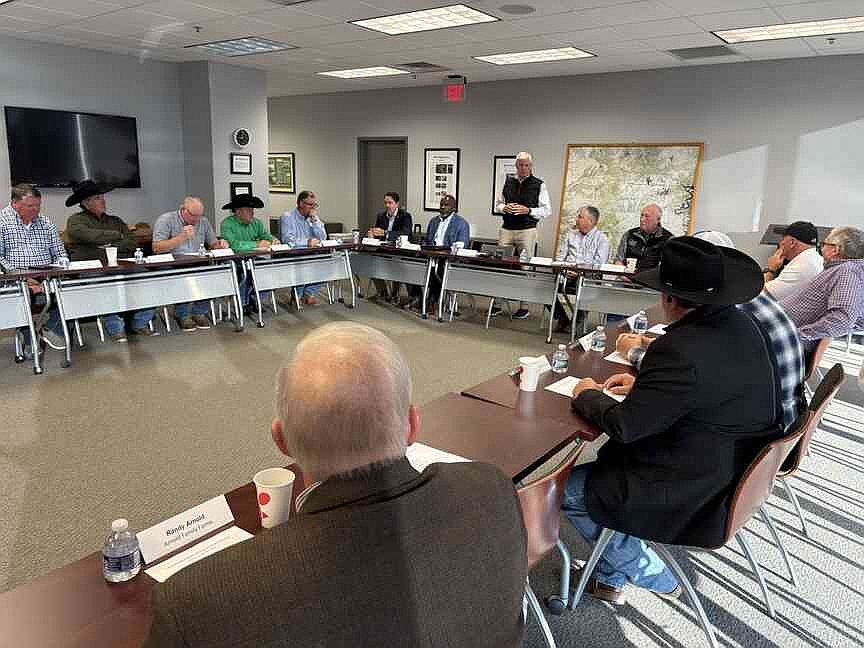Copyright Arkansas Online

SPRINGDALE -- Expect progress in Congress on ending the federal government shutdown as early as next week with money for SNAP benefits -- the federal Supplemental Nutrition Assistance Program -- running out on Saturday, Rep. Steve Womack of Rogers told a group of farmers, agricultural business leaders and educators at a roundtable discussion Thursday. Other, less visible consequences of the shutdown add to that pressure, he said. Almost a quarter of a million Arkansans are among the 42 million Americans benefiting from the SNAP program, according to government figures. When those benefits run out, "people will demand an end to this madness," Womack said. The congressman met with at least 22 farmers, ranchers, agricultural business representatives and educators to discuss agricultural issues in a roundtable held in the conference room of the Northwest Arkansas Council in Springdale, beginning at 9 a.m. Thursday. Womack will host another such meeting with health care stakeholders starting at 8 a.m. Friday. The shutdown is only the most immediate issue facing agriculture, according to forum participants. Rising costs of fertilizer, feed, seeds and other farm economy necessities rank high on the list of concerns, along with issues with access to export markets and a shortage of farm labor. "In the 1970s you could sell 10 calves and buy a truck with the money," said Bill Haak, a dairy and beef rancher who lives near Gentry, said after meeting with Womack. "Now you have to sell 50." Johnny Gunsaulis, chief agent in Benton County for the University of Arkansas Cooperative Extension Service, said farmers are still waiting to be paid the government's share of conservation work they have done on their land. Such work as setting aside conservation easements and planting trees and grasses to prevent stream bank erosion are among the projects involved, for which farmers have already paid much of the costs, he said. Deacue Fields, vice president for agriculture of the University of Arkansas, said the fact a portion of cooperative extension service agents' pay come from federal funds that are no longer available is "in the back of their minds every day," although the university has succeeded so far in using carryover funds to keep their pay coming. The federal government shutdown reached its 30th day Thursday with an impasse in Congress over the federal budget. The last federal fiscal year ended Sept. 30. Besides the expected interruption in SNAP benefits, many federal government employees are working without pay. "What this is doing is creating a lot of hardship for a lot of innocent people," Womack said.



